“Your period can last between 2 and 7 days,
but it will usually last for about 5 days.
The bleeding tends to be heaviest in the first 2 days”.1
Umbrella
What may the Periods Umbrella include?
Depending on the Source (DotS) this Umbrella may include:
- George
- Girl’s Week
- Menses
- Menstrual Cycle
- Menstrual Period
- Menstruation
- Monthly Bleeding
- Normal Vaginal Bleeding
- Period/s
- “Monthly”
Period
What is a period?
DotS the definition of a period may vary. In Periods: Overview the (United Kingdom) NHS’s definition is:
For most women this happens every 28 days or so, but it’s common for periods to be more or less frequent than this, ranging from every 23 days to every 35 days.
Your period can last between 2 and 7 days, but it will usually last for about 5 days. The bleeding tends to be heaviest in the first 2 days”.2
Menstrual Cycle
What is the menstrual cycle?
DotS the definition of the menstrual cycle may vary. In What Happens During the Typical 28-Day Menstrual Cycle? What Is the Menstrual Cycle? the Office on Women’s Health, United States Department of Health and Human Services, Womenshealth.gov’s definition is:
“The menstrual cycle is the monthly hormonal cycle a female’s body goes through to prepare for pregnancy. Your menstrual cycle is counted from the first day of your period up to the first day of your next period. Your hormone levels (estrogen and progesterone) usually change throughout the menstrual cycle and can cause menstrual symptoms”.3
In About the Menstrual Cycle: What Is A Menstrual Cycle? the (Australian) Jean Hailes for Women’s Health’s (JH) definition is:
Your menstrual cycle begins when you have your first period and finishes when you have your final period (menopause)”.4
Menstrual Cycle Pattern
What is a usual menstrual cycle pattern?
In Vaginal Bleeding: Basics – Definition the (United States) Mayo Clinic explain:
Look for A Pattern
How may I Look for A Pattern with my periods?
In Periods (Menstruation): Irregular Periods the (Scottish) NHS Inform elaborate on:
Health Care Provider
What if there are changes in my periods?
If there are changes in your periods, it may be in you best interest to choose to talk to your health care provider about this. In Menstrual Calendar the North American Menopause Society (now the Menopause Society) explain:
“During the transition to menopause (called perimenopause), it is normal to skip periods, but very frequent or heavy bleeding episodes often requires an evaluation by your healthcare provider. Any bleeding after menopause requires an evaluation by your healthcare provider”.7
In Your Period: When To See Your Doctor the JH note:

“There are many reasons you might need to see your doctor about your period. For example if:
- Your period patterns change
- You have increasingly heavier periods
- You have long periods (more than eight days)
- Your periods come less than three weeks apart
- Your periods come more than two to three months apart.
Also see your doctor if:
- You bleed between periods
- You bleed after menopause
- You bleed after having sex
- You have painful periods that affect your quality of life”.8
Health Topics A-Z
Where may I find Health Topics A-Z related to Periods?
In Health Topics A-Z you may find:
Links
Where may I find Links related to Periods?
Your Country may have Links similar to:
Links
This Links List to third party websites is neither comprehensive nor exhaustive. Inclusion on this Links List does not imply endorsement or recommendation. Non-inclusion on this Links List does not imply non-endorsement or non-recommendation. Third party websites are not under the control of Meno Martha International Menopause Directory. Third party websites may contain explicit medical images and/or sexual references. Please read Meno Martha International Menopause Directory’s Links Policy before proceeding to a Link. Please contact Webmaster if you experience a problem with a Link.New or Updated
- Bleeding on HRT Explained | Dr Louise Newson Live [20 September 2025]
- Can HRT Stop Your Periods? [10 March 2025]
- Consumer Video and Podcast Series: 2025 Consumer Videos and Podcasts – Abnormal Uterine Bleeding—When To See A Clinician [06 June 2025]
- Everything You Need To Know About Endometriosis | Dr Louise Newson [April 2025]
- Periods (Menstruation) [Other Languages and Formats] [13 January 2025]
- Understanding Your Period Cravings [09 February 2026]
- 9 PMDD Mythbusters
- About the Menstrual Cycle
- Adenomyosis
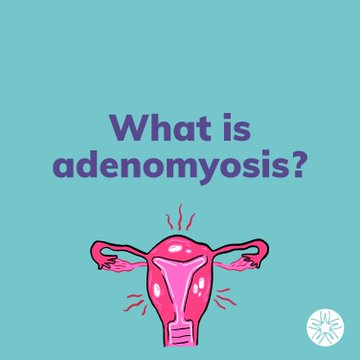
- Attention-Deficit/Hyperactivity Disorder and the Menstrual Cycle: Theory and Evidence
- Are Menstrual Cups Right for You?
- Bleeding Between Periods? How To Tell If It’s A Problem
- Bleeding Disorders In Women
- Bleeding Disorders In Women: About Heavy Menstrual Bleeding
Bleeding During Menopause | Dr Louise Newson
- Bleeding on HRT Explained | Dr Louise Newson Live
- Blood Clots During Menstruation: A Concern?
- Bloodygoodperiod.com [Bloody Good Period]
- Brown Discharge: 4 Causes and What It Means
- Can HRT Stop Your Periods? [Video]
- Consumer Video and Podcast Series: 2024 Consumer Videos and Podcasts – Preparing for Your Menopause Health Care Visit
- Consumer Video and Podcast Series: 2025 Consumer Videos and Podcasts – Abnormal Uterine Bleeding—When To See A Clinician
- Cramps But No Period: Getting To the Cause
- Different Types of Period Pain and What They Might Mean
- Does Your Period Really Sync With Close Friends’?
- Endometriosis
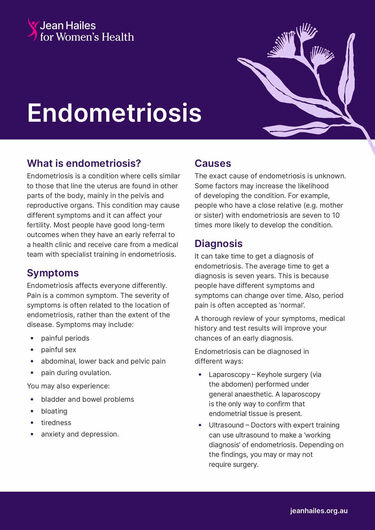
- Everything You Need To Know About Endometriosis | Dr Louise Newson
- FAQs: Abnormal Uterine Bleeding
- FAQs: Perimenopausal Bleeding and Bleeding After Menopause
- Go With the Flow: What You Need To Know About Free Bleeding
- Got Period Pain or Cramps? What To Eat and Avoid, According To Science
- Healthy Habits: Menstrual Hygiene
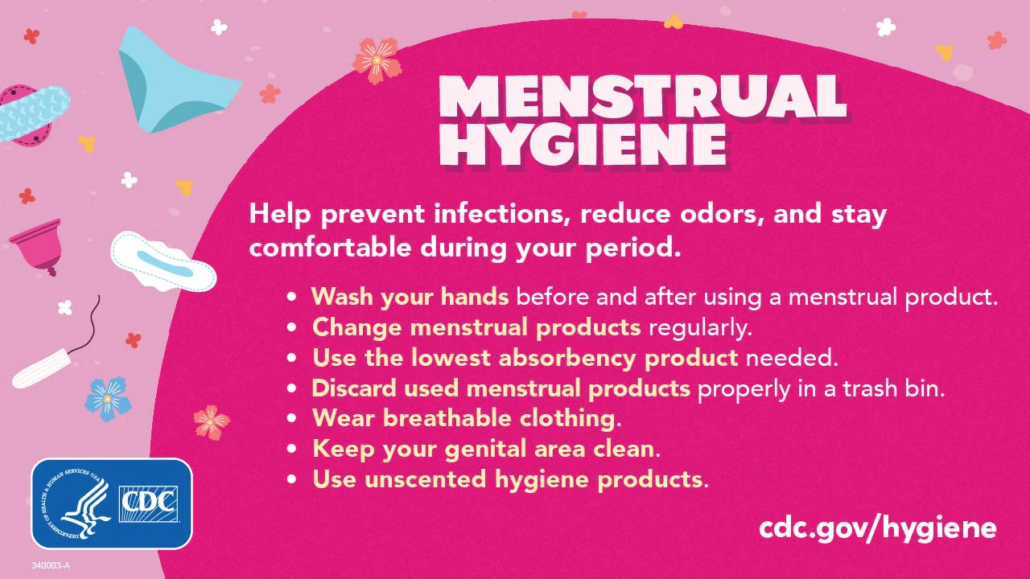
- Heavy Menstrual Bleeding
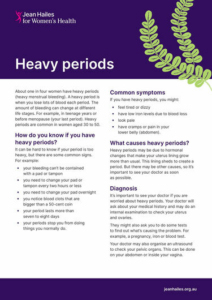 Heavy Menstrual Bleeding: What Women Need To Know – Podcast
Heavy Menstrual Bleeding: What Women Need To Know – Podcast- Heavy Periods
- Heavy Periods
- Heavy Periods (Menorrhagia)
- Heavy Periods Fact Sheet
- Heavy Periods: Can Folic Acid Help?
- Heavy Periods: Check If You Have Heavy Periods
- Home Remedies: Managing Menstrual Cramps
- How To Prepare for Your Doctors Appointment
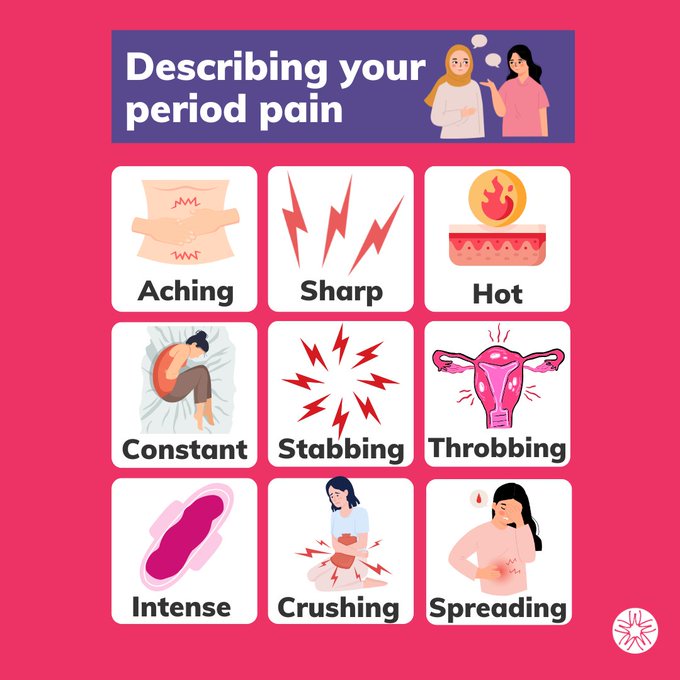
- How To Talk To Your Doctor About Heavy Periods
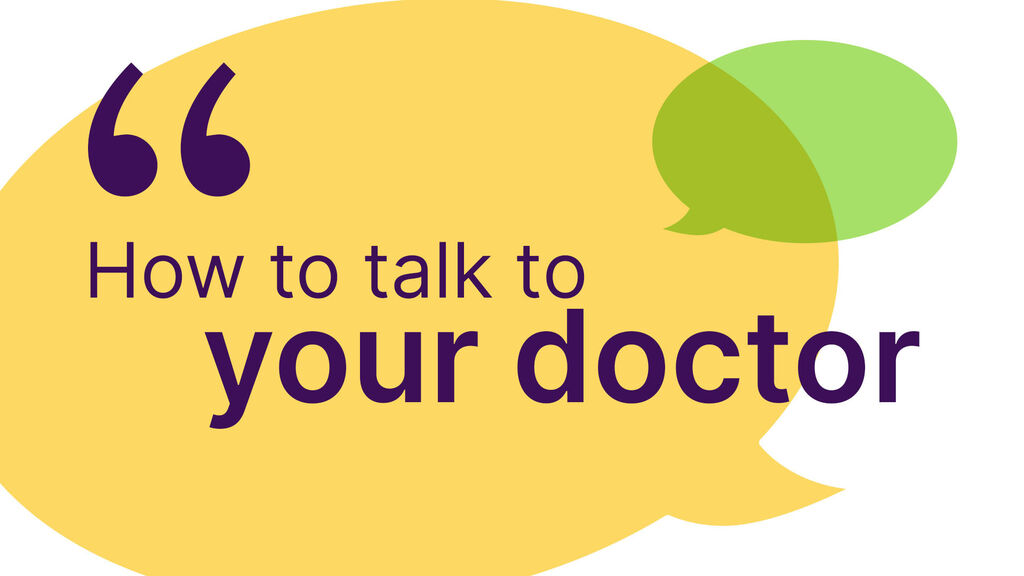
- Hormonal Health – Clues Made Clear
- Irregular Periods [+ Video] [Other languages and Formats]
- Irregular or Absent Periods
- Is Your Period Regular?
- Just A Period – Let’s Talk Heavy And Painful Periods Webinar
- “Just a period” [+ Video: Ever Been Told That It’s “Just a period?”]
- Menopause What Are the Symptoms? Early Symptoms – Change In Menstrual Periods
- Menopause: Symptoms
- Menorrhagia (Heavy Menstrual Bleeding)
- Menstrual Calendar
- Menstrual Calendar: Calendario Menstrual [Spanish]
- Menstrual Calendar: Calendrier Menstruel [French]
- Menstrual Cup
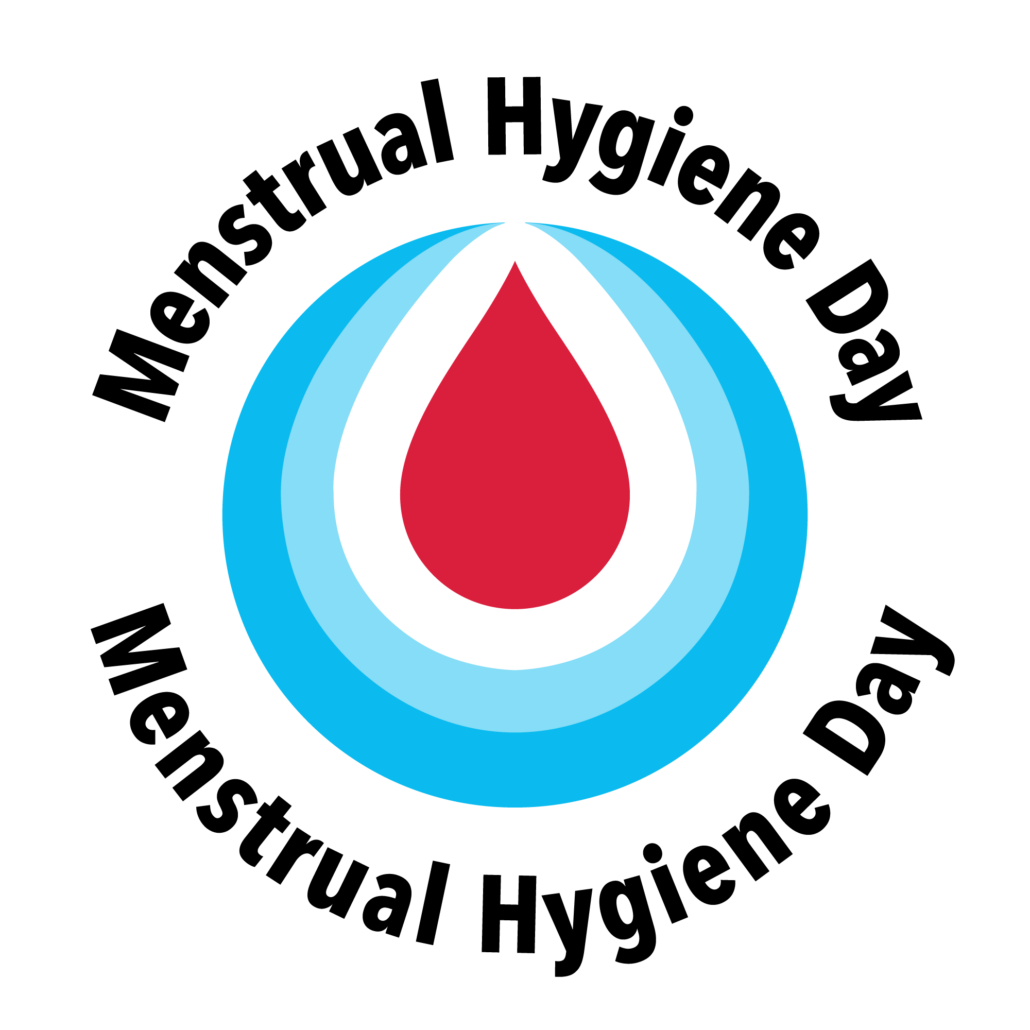 Menstrual Cycle
Menstrual Cycle- Menstrual Cycle: What’s Normal, What’s Not
- Menstrual Cycle: What’s Normal, What’s Not – How Can I Track My Menstrual Cycle?
- Menstrual Hygiene Day [28 May 2025]
- Menstruation: Science and Society
- Meperiod.info [Me Period]
- Missed or Late Periods
- PMD Awareness Month [April 2025]
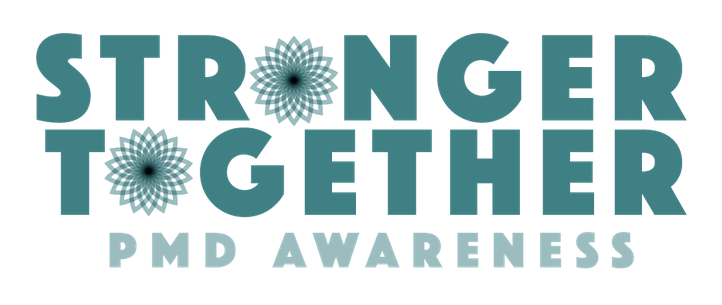
- PMS and PMDD | Dr Louise Newson
- PMS, PMDD and You
- Paused Periods [Other Languages and Formats]
- Period Blood Clots: Are They Normal?
- Period Pain
- Period Pain
- Period Pants
- Period Problems
- Period Products
- Period Symptom Checker

- Periods
- Periods
- Periods (Menstruation) Videos
- Periods (Menstruation) [Other Languages and Formats]
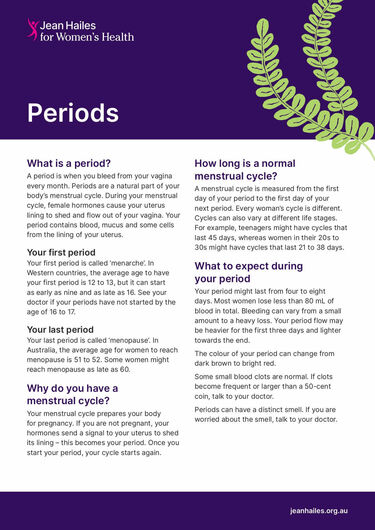 Periods Fact Sheet
Periods Fact Sheet- Periods Information Hub
- Periods Information In Community Languages
- Periods: Period Problems
- Periods: [+ Video: Menstrual Cycle]
- Premenstrual Syndrome (PMS)
- Premenstrual Dysphoric Disorder (PMDD)
- Suicide Risk Is Higher In Certain Phases of the Menstrual Cycle – Here’s What We Know About This Link
- The Facts on Tampons—and How to Use Them Safely
- The Menstrual Cycle
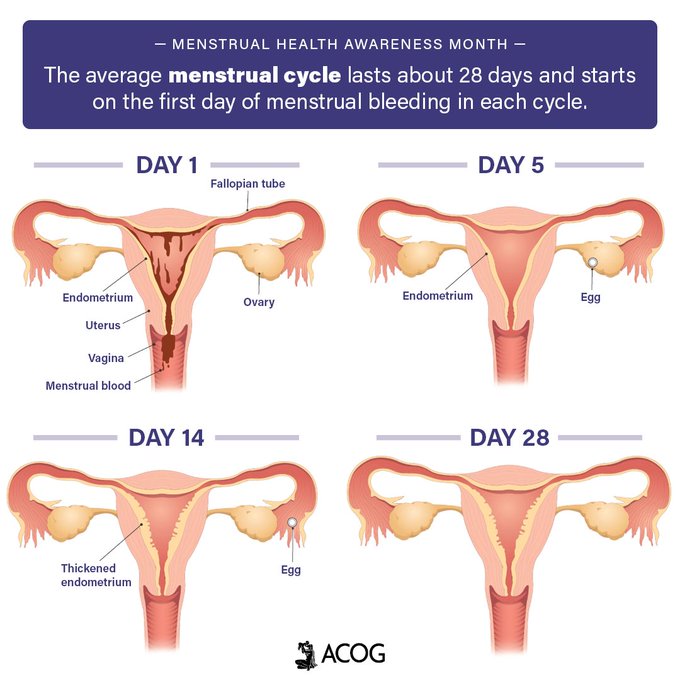
- This May Surprise You — But You Can Get Pregnant on Your Period
- Tips for Tracking Your Bleeding
- Tricky Periods: What’s ‘Normal’ and What’s Not
- Understanding Your Period Cravings
- Update on Endometriosis
- Uterine/Endometrial Cancer/GDT
- Vaginal Bleeding
- Videos and Podcasts: Videos – When Your Periods Leave Too Early
- What Are Heavy Periods?
- What Causes Bleeding Between Periods?
- What Is A Decidual Cast? [Video]
- What Is A Menstrual Cycle?
- What Is A Period?
- What Is Chasteberry, and What Can It Do?
- What Is Cycle Syncing?
- Why Is Bleeding So Heavy? [Video]
- Why Is My Period Lasting So Long?
- Your Menstrual Cycle
- Your Period
Sources
Where may I find the Sources quoted?
You may find the Sources quoted at:
Sources
- Periods: Overview. Page Last Reviewed: 05 January 2023. NHS https://www.nhs.uk/conditions/periods/ Accessed: 11 November 2025
- Periods: Overview. Page Last Reviewed: 05 January 2023. NHS https://www.nhs.uk/conditions/periods/ Accessed: 11 November 2025
- What Happens During the Typical 28-Day Menstrual Cycle? What Is the Menstrual Cycle? Page Last Updated: 13 January 2025. Office on Women’s Health, United States Department of Health and Human Services, Womenshealth.gov https://www.womenshealth.gov/menstrual-cycle/your-menstrual-cycle Accessed: 11 November 2025
- About the Menstrual Cycle. Last Updated: 21 November 2024 | Last Reviewed: 25 March 2024. Jean Hailes for Women’s Health https://jeanhailes.org.au/health-a-z/periods/about-the-menstrual-cycle Accessed: 11 November 2025
- Vaginal Bleeding: Basics – Definition. 02 May 2023. Mayo Clinic https://www.mayoclinic.org/symptoms/vaginal-bleeding/basics/definition/sym-20050756 Accessed: 11 November 2025
- Periods (Menstruation). Last Updated: 04 May 2023. NHS Inform https://nhsinform-n1.azurewebsites.net/healthy-living/womens-health/girls-and-young-women-puberty-to-around-25/periods-and-menstrual-health/periods-menstruation/ Accessed: 11 November 2025
- Menstrual Calendar. 2015. North American Menopause Society https://menopause.org/wp-content/uploads/default-document-library/menonote-menstrual-calendar-english.pdf Accessed: 11 November 2025
- Your Period: When To See Your Doctor. Last Updated: 12 July 2024 | Last Reviewed: 25 March 2024. Jean Hailes for Women’s Health https://www.jeanhailes.org.au/health-a-z/periods/your-period Accessed: 11 November 2025







